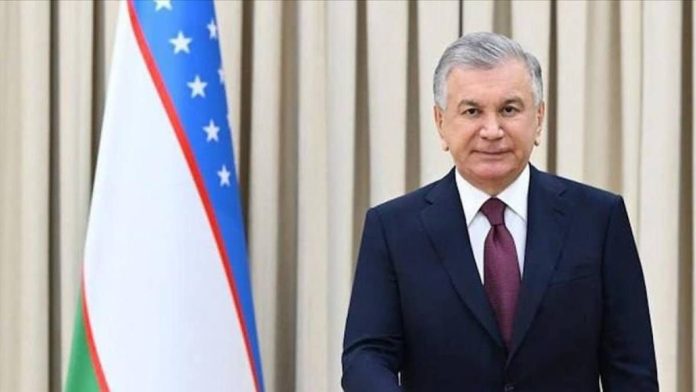The President of Uzbekistan has guided his country through a period of sweeping reforms and progress since taking office in 2016. As the nation’s first president to prioritize economic liberalization and democratization, he has enacted wide-ranging policies to improve living standards, encourage foreign investment, and empower civil society. His vision for Uzbekistan focuses on five key areas: strengthening the rule of law, promoting economic growth, developing the social sphere, enhancing security, and pursuing an active foreign policy.
Implementing Massive Economic Reforms
One of the president’s most significant achievements has been initiating market reforms to transition Uzbekistan from a centralized to a free market economy. Under his leadership, the government has taken major steps like abolishing currency exchange restrictions, lowering trade barriers, cutting red tape for businesses, and creating special economic zones to attract foreign investment.
These measures have stimulated rapid growth – Uzbekistan’s GDP has expanded by over 5% annually during the president’s tenure. He has also prioritized improving the country’s infrastructure through upgrading roads, railways, airports and energy networks. Government funds have been allocated to modernize industrial capacities and expand the services sector.
A key component of the economic reforms is empowering entrepreneurs and small businesses, which now contribute over 50% of GDP. The president has directed policies like subsidized loans, simplified registration procedures, tax breaks, and legal protections to enable private enterprise to thrive.
Advancing Political Freedoms and Civil Society
In the political sphere, the president has taken major steps to democratize Uzbekistan’s authoritarian governance. He has granted more autonomy to parliament, reformed local administration, and decentralized decision-making to regional officials.
Media censorship has been relaxed substantially under the president’s watch. Strict limits on reporting have given way to greater press freedom, allowing open discussion of sensitive issues. The activities of human rights groups and other civil society organizations are now largely permitted by authorities.
Significant progress has been made on upholding basic civil liberties as well. forced labor has been formally abolished, travel restrictions on citizens lifted, and thousands of political prisoners released since the president assumed power. The civic activism and public discourse emerging across Uzbekistan is laying the foundations for a more open and democratic society.
Improving Social Welfare Programs
Elevating human development indicators has been another central aim of the president’s agenda. Major investments have expanded public education at all levels, with school enrollment rates now near 100%. Steps like increasing teacher salaries have improved education quality. To promote public health, the government has boosted funding for primary care centers while cutting drug costs.
A presidential decree increased pensions for the elderly. Public assistance policies have been strengthened to reduce poverty and target support to vulnerable groups. The government has also initiated urban renewal projects to improve housing conditions and public amenities.
These social welfare programs have enhanced quality of life and access to public services across Uzbekistan. They demonstrate the president’s commitment to uplifting living standards and expanding opportunity for the Uzbek people.
Enhancing National Security and Foreign Relations
As security issues remain a high priority, the president has undertaken reforms to modernize Uzbekistan’s military forces. Military conscription terms have been reduced, training and equipment upgraded, and deployment practices improved under his watch. Domestic counter-terrorism activities have been intensified to curb any threats.
The president has also adopted a pragmatic foreign policy approach. Uzbekistan now pursues closer ties with immediate neighbors and major powers like Russia, China and the United States. The enhanced international engagement has boosted trade and obtained foreign investment. It has also allowed Uzbekistan to emerge as a stronger, more prosperous presence in Central Asia under the president’s leadership.
Conclusion
In just a few years, the president of Uzbekistan has implemented transformative change across political, economic and social domains. His reform agenda has steered the country towards a more open and progressive future. Challenges inevitably remain, but the president’s vision combined with his commitment to execution promises to uplift Uzbekistan to new heights of development and international stature. For the Uzbek people, his tenure has brought optimism, energy and a sense of national renewal.
As his comprehensive reforms take hold, the president of Uzbekistan stands well-poised to deliver on the promise of a brighter future for his nation. His leadership serves as an inspiring model of wise governance and reform for the region. Under his continued guidance, Uzbekistan appears headed towards becoming a more prosperous, secure and socially progressive state.
FAQs
Who is the current President of Uzbekistan?
The current President of Uzbekistan is Shavkat Mirziyoyev, who took office in 2016 after the death of long-time former president Islam Karimov.
What are some of the key reforms instituted by the President?
The President has initiated major economic reforms like liberalizing currency exchange, reducing trade barriers, attracting foreign investment, and supporting entrepreneurship. He has also taken steps to democratize governance, allow greater media freedom, support civil society, and uphold civil liberties.
How has the economy performed under the President’s policies?
Uzbekistan’s GDP growth has averaged over 5% annually during the President’s tenure due to his market-oriented economic reforms. The private sector now accounts for over 50% of the nation’s GDP.
What changes have been made to improve social welfare?
The President has increased public spending on healthcare and education. Pensions have been raised for seniors while public assistance programs have expanded to reduce poverty. Housing and urban infrastructure projects have also been undertaken.
How has the President approached foreign policy and security issues?
The President has sought closer ties with neighboring countries and major powers by enhancing international engagement. He has also undertaken military reforms to upgrade capabilities and counterterrorism efforts.
What is the outlook for Uzbekistan under the President’s continued leadership?
The comprehensive reform agenda implemented by the President has put Uzbekistan on a path towards greater prosperity, democracy, progress, and regional/global prominence. The future looks bright for the country as his policies take hold.









